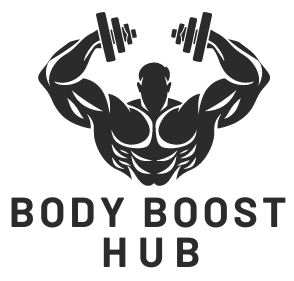Eating a nutritious diet is essential for anyone looking to improve their fitness and enhance their workouts. What you eat before and after a workout can significantly impact your energy levels, performance, and recovery. Here’s a look at some key considerations for fueling your body to achieve your fitness goals.
First and foremost, let’s talk about carbohydrates. Carbohydrates are your body’s primary source of energy, and they are especially important for fueling workouts. Opt for complex carbohydrates such as whole grains, oats, quinoa, and sweet potatoes. These foods provide a steady release of energy, ensuring that you have the stamina to power through your workouts. However, it’s important to time your carbohydrate intake appropriately. Consuming a carbohydrate-rich meal two to three hours before exercising can help top off your energy stores, while a smaller carbohydrate-rich snack 30 minutes to an hour before training can provide that extra boost.
In addition to carbohydrates, protein is a key nutrient for supporting muscle repair and growth. Including a sufficient amount of lean protein in your diet is essential for building and maintaining muscle mass. Good protein sources include poultry, lean meats, fish, eggs, dairy, beans, and nuts. Distribute your protein intake evenly throughout the day to maximize muscle protein synthesis. As a general guideline, aim for 20–30 grams of high-quality protein with each meal and after your workout. This helps promote muscle recovery and growth.
Fatty acids, both omega-3 and omega-6, are essential for overall health and can also impact your exercise performance and recovery. Omega-3 fatty acids, in particular, have been linked to reduced inflammation and improved joint health, which can be beneficial for those engaged in regular physical activity. Aim to include fatty fish like salmon or tuna in your diet at least twice a week. If you don’t eat fish, consider taking an omega-3 supplement to ensure you’re getting enough of these healthy fats.
Proper hydration is another critical component of optimal workout performance. Water plays a vital role in transporting nutrients to your muscles, regulating body temperature, and removing waste products. Even mild dehydration can impact your strength, endurance, and coordination. Aim to drink plenty of water throughout the day, and don’t forget to hydrate before, during, and after your workouts, especially if you’re engaging in intense or prolonged exercise.
In addition to your overall dietary choices, the timing of your meals can also impact your workout performance and recovery. As mentioned earlier, consuming a carbohydrate-rich meal a few hours before exercising can optimize your energy stores. Similarly, your post-workout meal is crucial for recovery. Aim for a balanced meal that includes both carbohydrates and protein within an hour or two of finishing your workout. This will help replenish your energy stores and repair and rebuild your muscles.
If you’re an early bird who likes to work out in the morning, you might want to consider having a light snack before your session, such as a piece of fruit with nut butter or a protein bar, especially if it’s been several hours since your last meal. This will give you a boost of energy to power through your routine without feeling too full or weighed down. Just be sure to follow it up with a more substantial, balanced meal afterward to refuel and replenish your body.
While everyone’s nutritional needs are unique, there are some universal truths when it comes to fueling your body for fitness. Eating a balanced diet that includes a variety of nutrient-dense foods is always a good idea. Prioritize whole, unprocessed foods, and don’t be afraid to experiment with different meal timings and compositions to see what works best for your body and your workout regimen. Remember, nutrition is just as important as the exercise itself when it comes to achieving your fitness goals and performing at your best.
Lastly, don’t underestimate the power of rest and recovery. Adequate sleep is crucial for muscle recovery and repairing and regenerating tissues. Aim for 7–9 hours of quality sleep each night to ensure your body is well-rested and ready to take on the challenges of your fitness routine. Listening to your body and allowing for proper rest days can also help prevent injuries and overtraining. So, make sure to incorporate rest days into your workout schedule to optimize your fitness journey and maintain a healthy balance.

